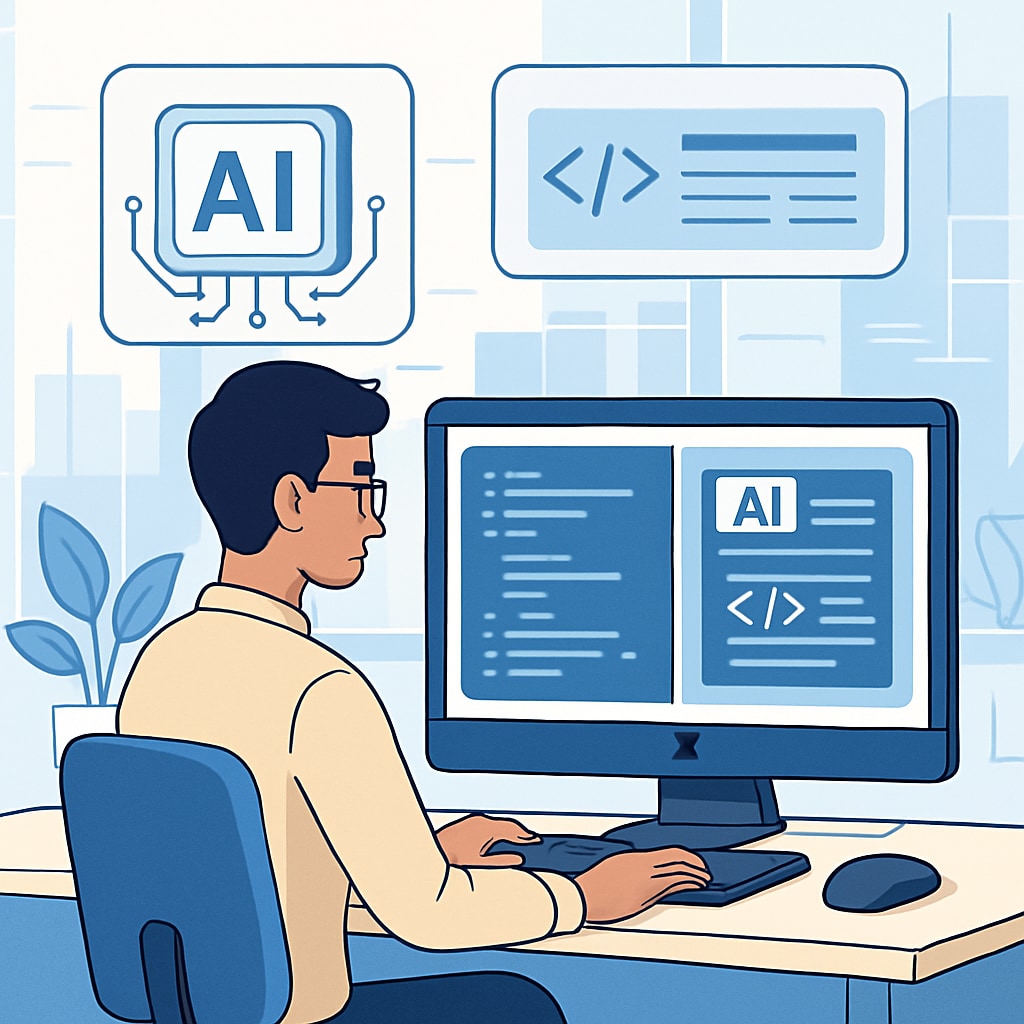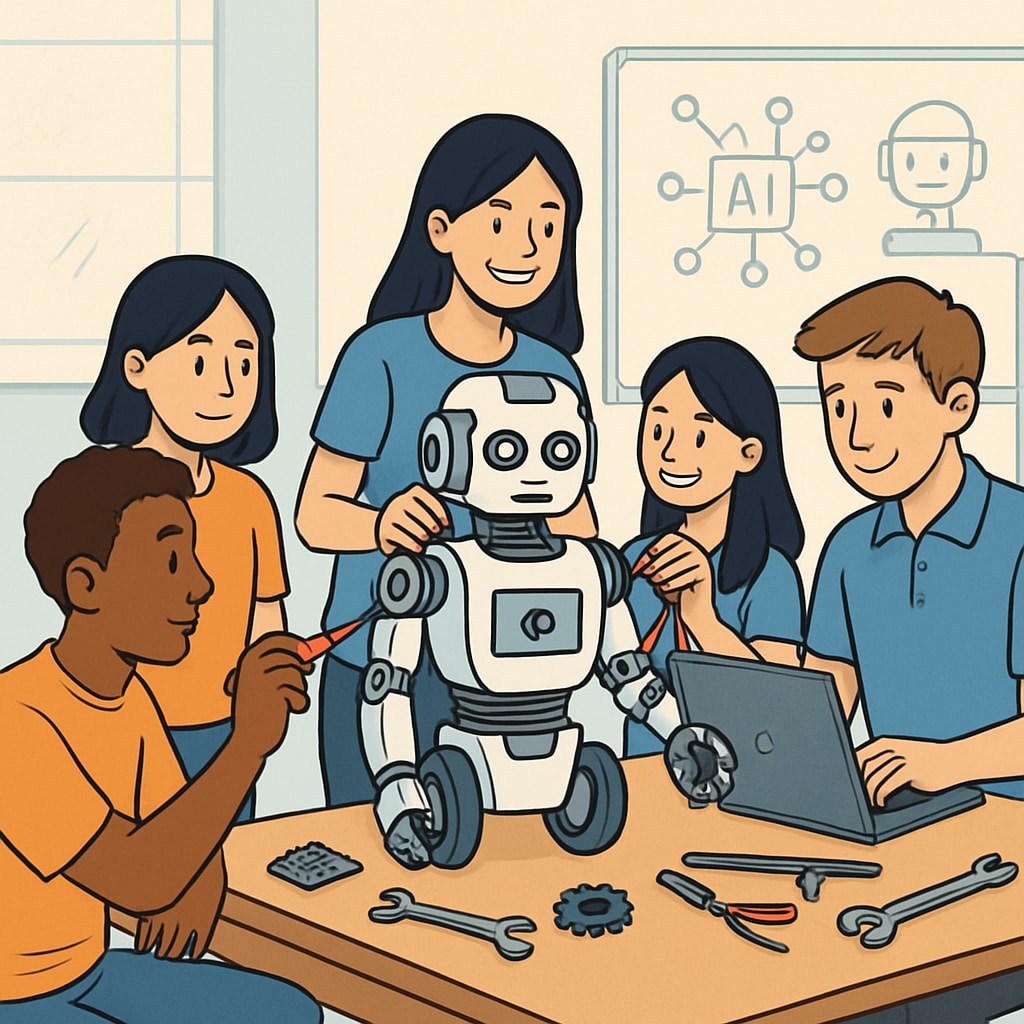In an age dominated by artificial intelligence (AI), the question of career choices, particularly between programmers and engineers, has become a pressing concern for young students. As the pace of AI development accelerates, many 8th-grade students and their parents are pondering the long-term viability of these professions. This article delves into the prospects for programmers and engineers in the AI era and offers actionable advice to help teens identify the career path best suited to their skills and aspirations.
The Impact of AI on Career Choices
AI is not just reshaping industries; it is redefining professions. Jobs that once seemed stable are undergoing transformation, and new roles are emerging. For example, software development—once synonymous with programming—is increasingly influenced by AI tools like machine learning (ML) and automated coding platforms. Engineers, too, are witnessing a shift, as AI integrates into fields like civil engineering, robotics, and electrical systems.
However, while automation reduces some demand for repetitive tasks, it also opens up opportunities to focus on innovation and problem-solving. This evolution explains why students today are uncertain about which career—programming or engineering—offers better prospects for growth and stability.

Understanding the Roles: Programmer vs. Engineer
Before deciding, it’s crucial to understand what each profession entails. Programmers primarily write, test, and debug code to create software applications, websites, or other digital solutions. They work in various industries, including tech, finance, and healthcare, and often specialize in languages like Python, Java, or C++.
Engineers, on the other hand, apply scientific and mathematical principles to design, build, and test systems and products. While software engineers overlap with programming, other branches like mechanical or civil engineering focus on physical systems. The engineering field has broader applications, from building infrastructure to creating renewable energy solutions.
Both professions are adapting to AI. For programmers, AI tools such as GitHub Copilot accelerate coding processes, while engineers use AI-driven simulations to optimize designs. Understanding these nuances can help students align their interests with the demands of each field.
Future Trends in Programming and Engineering
To address students’ concerns, it’s helpful to consider future trends:
- Programming: Demand for AI and ML specialists is rising. Programmers who develop expertise in these areas are likely to remain highly sought after. Skills in data science, cybersecurity, and cloud computing are also becoming essential.
- Engineering: Fields like renewable energy, robotics, and smart infrastructure are experiencing significant growth. Engineers who embrace AI tools for optimization and efficiency will have a competitive edge.
In addition, hybrid roles such as AI engineers are emerging, blending programming and engineering skills. These roles demonstrate how interdisciplinary knowledge is becoming increasingly valuable in the job market.

How to Decide: Key Questions for Students
Choosing a career path involves self-reflection and research. Here are some questions to help students decide:
- Do you prefer working with software and logical problem-solving, or do you enjoy hands-on work with physical systems?
- Are you more drawn to theoretical concepts (programming) or practical applications (engineering)?
- Which industries or projects excite you the most? For instance, are you passionate about gaming, AI development, or building sustainable cities?
Students should also consider shadowing professionals, participating in coding bootcamps, or exploring engineering projects to gain firsthand experience. These activities can provide clarity and help narrow down options.
Conclusion: Thriving in the AI Era
Whether pursuing programming or engineering, students can thrive in the AI age by focusing on continuous learning and adaptability. Both fields offer exciting opportunities for those willing to stay updated on technological advancements and develop interdisciplinary skills.
As AI continues to evolve, the key to success lies in choosing a path that aligns with your passions and strengths while remaining open to change. By doing so, today’s 8th graders can carve out fulfilling careers in a rapidly changing world.
Readability guidance: This article uses short paragraphs and lists to enhance readability. Each section is designed to provide concise yet comprehensive insights, ensuring clarity and engagement for young readers.


